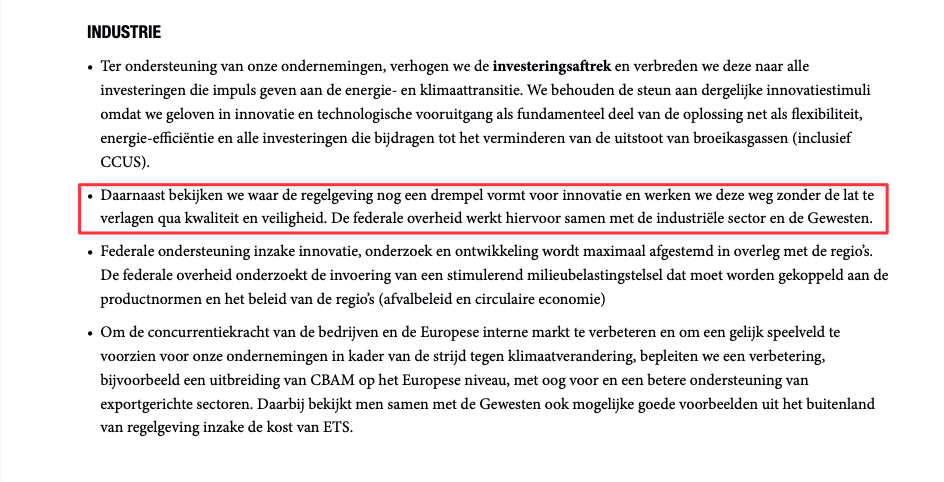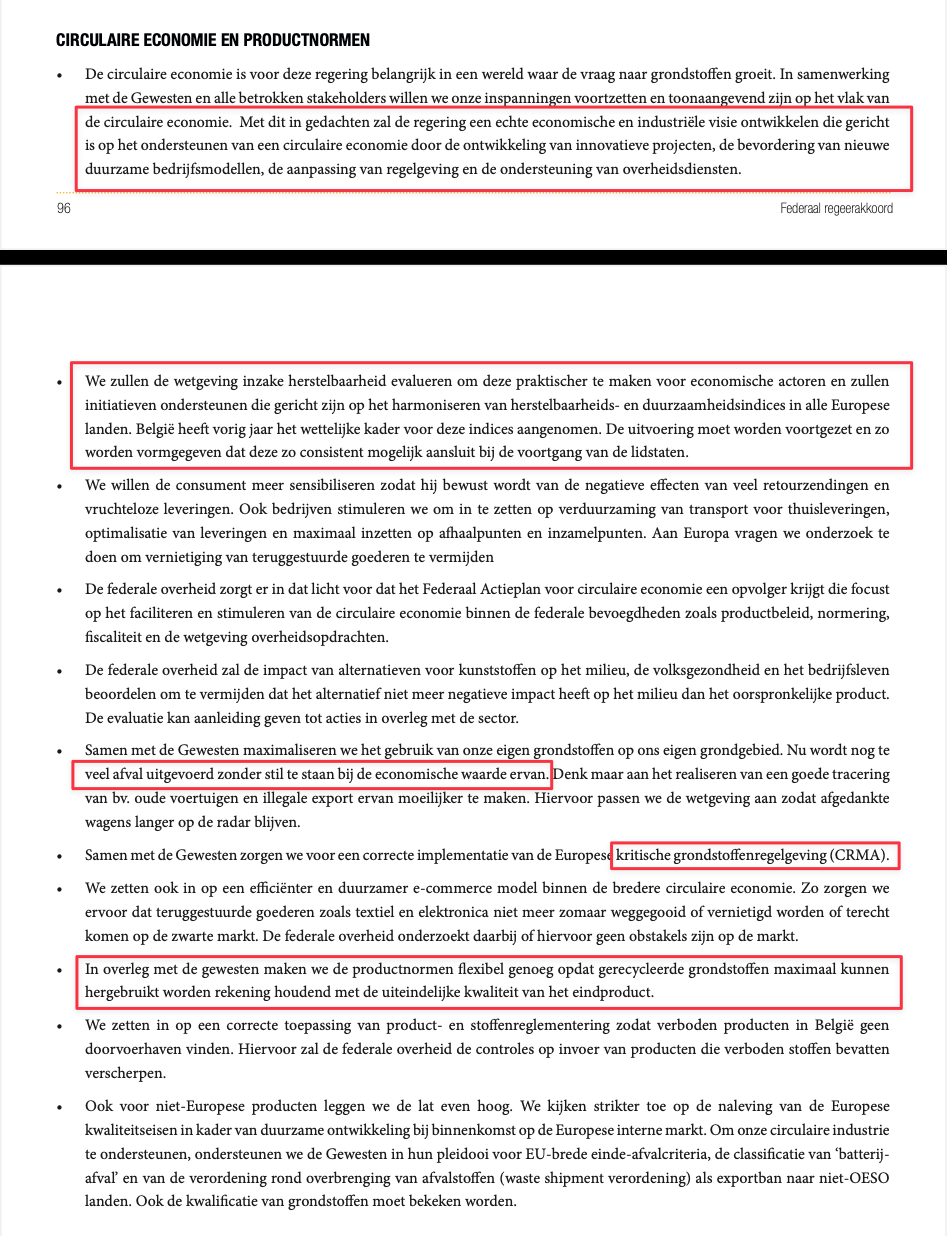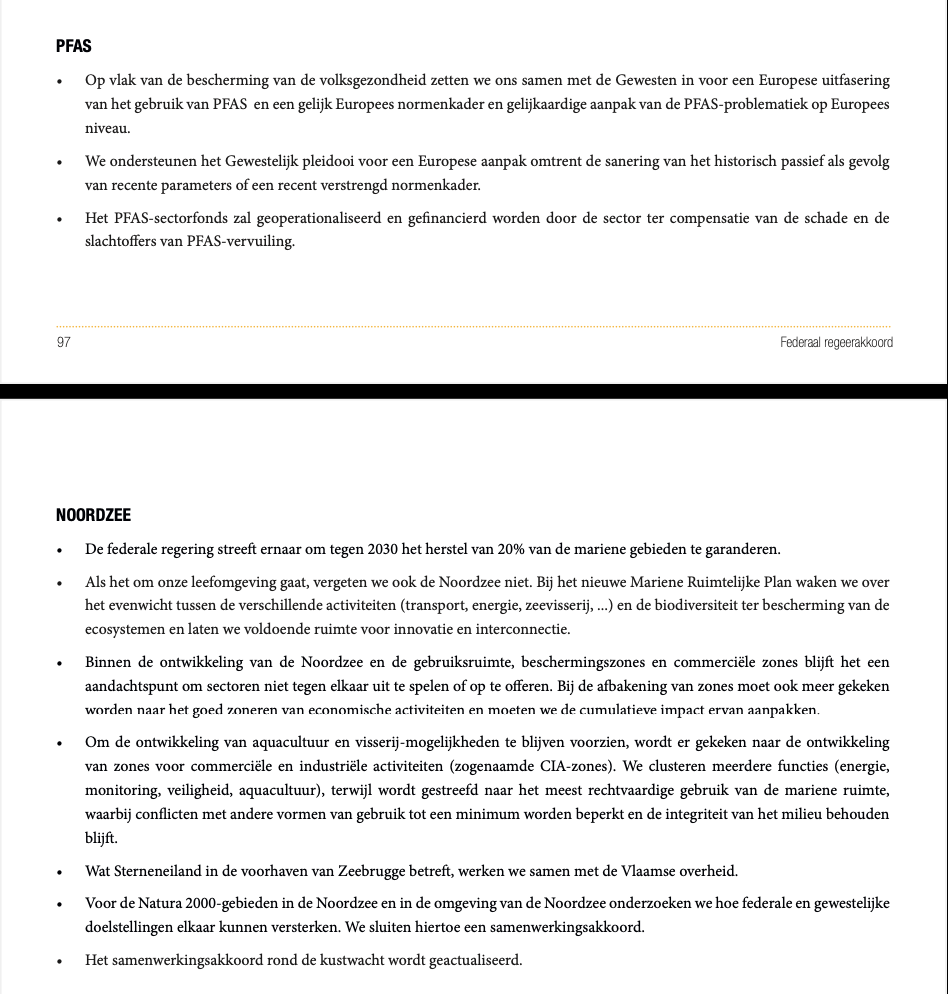Innovation Will Be Less Hindered
The government wants to reduce regulations that hinder innovation. As stated: “We are reviewing where regulations still pose a barrier to innovation and are removing them without lowering standards for quality and safety.” (Section: Industry)
This is crucial for CWG, which develops innovative technologies to tackle challenges in water management and circular processes.

Circular Economy in the Spotlight
The government focuses on maximizing the use of raw materials and minimizing waste exports without economic added value. “Together with the Regions, we maximize the use of our own raw materials to utilize our own territory,” states the coalition agreement. (Section: Circular Economy and Product Standards)
Regulations around reuse will also become more flexible: “Recycled raw materials will be reused to the maximum extent, taking into account the quality requirements of the final product.”

European Cooperation and PFAS Approach
The government focuses on a European approach to PFAS pollution: “The PFAS sector fund will be expanded for the remediation of historical contamination.” (Section: PFAS)
For CWG, this offers opportunities to further apply expertise in water purification technology.

Conclusion
The coalition agreement shows ambition to support innovation and sustainability. Fewer barriers to innovation, a focus on the circular economy, and cooperation on PFAS are all developments that support CWG.